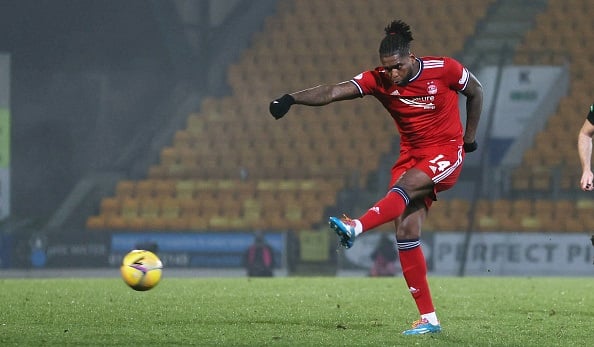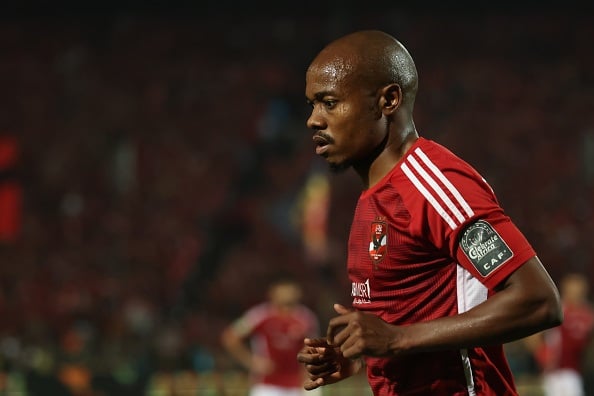
No one should fault Dak Prescott for signing the deal the Cowboys finally put in front of him, a historic contract that makes him the NFL’s first $60 million–per-year player and allows him to retain his prestigious (if pressure-filled) role as the quarterback of America’s Team. For a 31-year-old passer who recently welcomed his first child and has already overcome one significant injury, that sort of job security must have been appealing. But unless you’re in Prescott’s immediate family or are among the most die-hard pro-Dak Cowboys fans, this deal, and especially the timing of it, is a bit of a bummer, because Prescott was hours away from embarking on the most entertaining contract year the NFL’s ever seen.
Imagine what the ensuing months could have looked like. Every game—maybe every quarter!—would have been a referendum on Prescott and Jerry Jones and the entire Cowboys franchise. Every touchdown pass would add millions to his next contract; each miscue would become a new chyron on First Take .

It would have been exhausting and exhilarating at the same time. But this isn’t really about Prescott or how much more than $240 million he might have been able to milk out of quarterback-desperate owners next March (though it probably would have been a lot). This is about the NFL’s power structures and how even when individual players like Prescott win and the positional salary markets creep up year by year, the players will never hold true power.
It’s not a bug that elite players almost never reach free agency. It’s a feature NFL owners have profited from and worked to maintain. They’ve built into the collective bargaining agreement fifth-year team options for first-round picks and routinely used the franchise tag to keep productive veterans from hitting free agency.
Related Lamar Jackson went as far as to request a trade from the Ravens, days before the team placed the nonexclusive franchise tag on him in 2023. That tag (as opposed to the exclusive variety) was supposed to allow Jackson to test his market and see what other teams might offer him. Yet the Ravens still held all the leverage —they would have had the chance to match any offer sheet, and what do you know, even teams that clearly needed a new quarterback weren’t willing to drive up the market.
I won’t use the c-word here (but I may have done so in the past ), but it sure was fishy! (Jackson did eventually get his new contract from the Ravens, which briefly made him the highest-paid quarterback by annual salary, but in 2024, he’s making less than Jared Goff and Jordan Love and Tua Tagovailoa, among others.) The Ravens would probably argue that’s simply smart business! And they’d be right. Even a young player with Jackson’s unique dynamism and MVP résumé is no match for the NFL System.
Smart teams often try to get extensions for their star players done early, to get ahead of the market as the salary cap continues to climb, and they structure those deals in team-friendly ways. It’s what the Eagles did with Jalen Hurts in April 2023. And it’s definitely what the Chiefs did with Patrick Mahomes in July 2020 .
Sure, it looked great for Mahomes in the moment when he signed that 10-year, $450 million contract extension. That’s almost half a billion dollars! But four years and two more Super Bowl MVP awards later, his contract is a freaking steal for the Chiefs. He’s under contract through 2031, and there are now 11 quarterbacks earning a higher average salary than Mahomes.
Dumber teams, like, ahem , the Cowboys, draw out contract negotiations far longer than they should and wind up paying top-of-the-market deals. (See: Lamb, CeeDee.) Would anyone be surprised if Micah Parsons’s contract negotiations drag out for months, while he and Jones trade barbs in the media, before Parsons becomes the highest-paid defensive player in the league next year? But even these teams that are bad at roster management still usually re-sign their best players before those players can negotiate with other teams in a free market.
NFL players’ power will never truly match that of their professional basketball peers. In the NBA, if you become a certain level of star, you get a commensurate level of power—in the form of max contracts and huge guarantees and leverage to convince your bosses to sign the free agents you want. Or you get freedom and the ability to leave for a more desirable destination, or more money, or both, with little standing in your way.
Prescott would have been the first quarterback in recent years to gain even close to that level of leverage in the NFL. He played out the rookie contract he signed as a fourth-round pick in 2016 only to be franchise tagged by the Cowboys in 2020, only to suffer a serious ankle injury later that season. In 2021, he secured a massive new contract that included no-tag and no-trade clauses, and he didn’t hold out at any point this offseason—the thing players typically do when they’re trying to force an extension before a contract year.
He seemed content to push Jones all the way to this artificial Week 1 deadline to get a new deal done, or table negotiations till next spring, when Jones would have to compete against at least a handful of rich and quarterback-needy fellow owners. It’s truly amazing (or maybe depressing) that the only quarterbacks to truly game the system are Deshaun Watson and Kirk Cousins. Watson did so not through free agency, but after somehow convincing multiple teams to try to outbid each other only after it was clear he wouldn’t be charged with multiple felonies and after the Texans made it clear they wanted to trade him.
(It is worth noting that other NFL owners were not pleased when the Browns gave Watson a fully guaranteed $230 million deal—and it wasn’t because of Watson’s ugly off-field issues.) Cousins, who has always been good but never great, twice reached free agency as the best veteran quarterback available. In 2018, he turned that leverage into a fully guaranteed three-year deal from the Vikings; this offseason, he joined the Falcons on a deal that includes $100 million in guarantees—despite being 36 years old and recovering from a torn Achilles.
If those guys, in those situations, got that much money, imagine what free agency for a top-10 quarterback could look like! At the risk of preemptively throwing cold water on The Ringer ’s 2025 free agent coverage, without Prescott, who finished second in MVP voting last season and is currently no. 6 on The Ringer ’s QB Rankings , on the board, it’s looking bleak. The list of impending free agent passers is a who’s who of failed first-round picks—Sam Darnold, Zach Wilson, Justin Fields, Trey Lance, and Marcus Mariota—mixed in with a lackluster bunch of NFL journeymen like Jacoby Brissett and Taylor Heinicke.
It might be years until there’s another quarterback in position to truly shake up the NFL free agency system. Perhaps in five or six years, after he’s played out his fifth-year option and spent a year on the franchise tag, Caleb Williams might be the one to do it ( Williams asked the Bears to include a no-tag clause in his rookie deal; the Bears told him to pound sand ). Until then, we’ll have to dream about what might have been and let Dak Prescott count his new cash.
Sign up for the The Ringer Newsletter Check your inbox for a welcome email. Oops. Something went wrong.
Please enter a valid email and try again..







-and-Aiden-Upward-produced-a-65-run-partnership.jpeg?auto=webp&width=1200)






